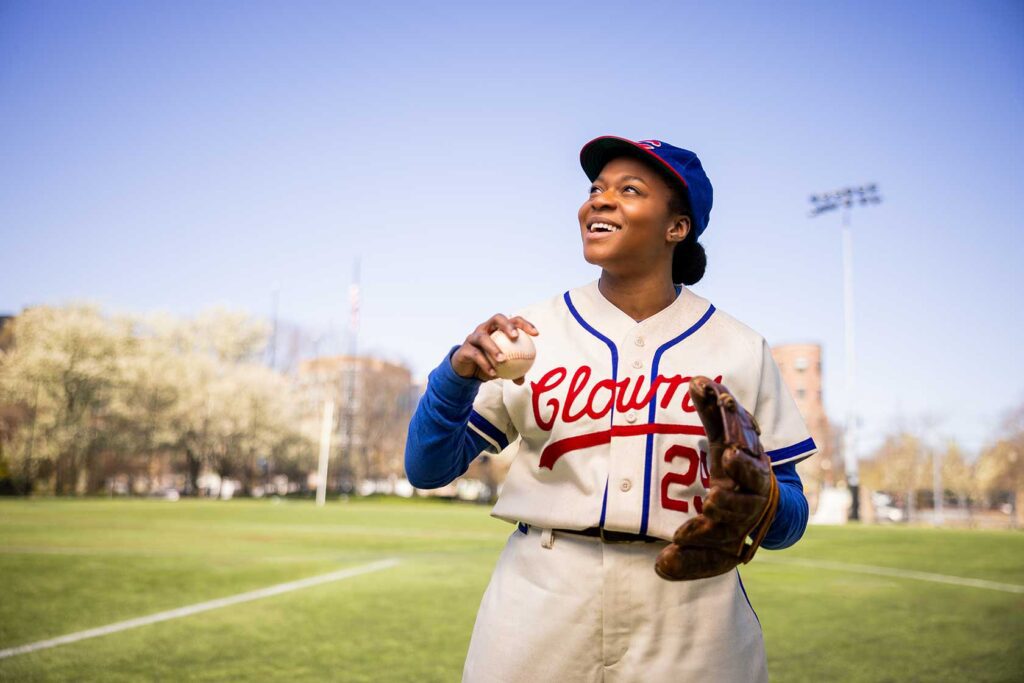
Banner Arts & Culture Sponsored by Cruz Companies
Toni Stone was the first woman to play regularly in a major-level professional baseball league. Turned away from the All-American Girls Professional Baseball League because of her race, she played on men’s teams in the Negro Leagues in the 1940s and 50s. “Toni Stone,” opening at The Huntington Theatre this week, tells her story with humor, heart and a whole lot of baseball.
Writer and director Lydia R. Diamond says, “‘Toni Stone’ is a play that is especially close to my heart. A woman with a singular focus who, through hard work and tenacity, realized her dreams.”
The play was inspired by “Curveball: The Remarkable Story of Toni Stone,” by Martha Ackmann, a western Massachusetts journalist and author. Interpreted for the stage, the production is vibrant, physical and uplifting. The performance debuts at the perfect time, the height of baseball season in Boston, when every other song in the air is “Sweet Caroline.”
The title character is played by Jennifer Mogbock, seen last year in the ART’s “The Half-God of Rainfall.”
Cambridge native Bobby Cius plays Jimmy, the newest member of the team, who’s timid socially but fierce on the field. Cius admits that he had never been to a Red Sox game until the cast went for research purposes while preparing for the show. The outing was enlightening.
“We got to see the energy of the crowd and get an idea of how the flow of the game goes,” says Cius. “I think in a lot of subconscious ways it’ll inform how we orchestrate ourselves during the show.”

Jennifer Mogbock plays the leading role in The Huntington Theatre production of “Toni Stone.” PHOTO: Nile Hawver
Though there are many baseball scenes in the play, there’s a whole lot more dancing than you’ll find at a Red Sox game. The play has the physicality of a musical (although it isn’t one). Boston-native choreographer Ebony Williams, famous for her work with Beyonce and on the “In the Heights” film, has worked overtime to translate the playful spirit of the game into the cast’s movements.
The showmanship of the Negro Leagues wasn’t just bravado — it was a safety net. When playing in primarily white towns and against white teams, the players would inject their games with humorous swagger to create a sense of ease and avoid conflict. This is addressed in the show, along with other racial boundaries, although the focus is less on Stone’s barriers and more on how she overcame them.
“The show is really about resilience and autonomy and having the courage and the audacity to stand up for yourself, despite what the world outside might say,” says Cius. “I want people to take away the notion that if there’s something that you really love, that you really want, to go after it by any means.”
“Toni Stone” runs at The Huntington May 17-June 16.








